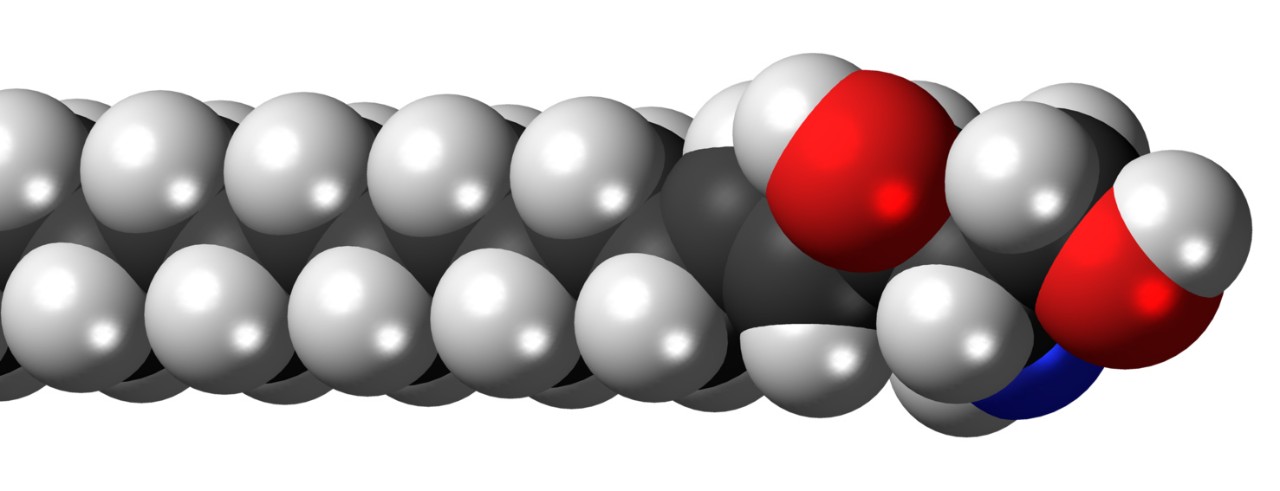
Drug Target Review: Could a nasal spray prevent COVID-19?
A UC study shows that a lipid might prevent infection and could potentially be easily administered
According to a study led by UC researchers, the lipid sphingosine may have the ability to inhibit SARS-CoV-2 infection and could potentially be delivered in a nasal spray to prevent COVID-19 infections.
Researchers, led by a visiting professor in the UC Department of Surgery Erich Gulbins, MD, have examined pre-existing research into bacterial respiratory tract infections and applied the findings to COVID-19, with some success. According to the scientists, a sphingosine nasal spray could potentially prevent or treat SARS-CoV-2 infections.
“We investigated whether a specific lipid [sphingosine] is able to interfere with the binding of SARS-CoV-2 to human epithelial cells,” said Gulbins, corresponding author on the study, published in the Journal of Biological Chemistry.
Featured photo of the lipid sphingosine courtesy of Jynto.
Next Lives Here
The University of Cincinnati is classified as a Research 1 institution by the Carnegie Commission and is ranked in the National Science Foundation's Top-35 public research universities. UC's graduate students and faculty investigate problems and innovate solutions with real-world impact. Next Lives Here.
Related Stories
Love it or raze it?
February 20, 2026
An architectural magazine covered the demolition of UC's Crosley Tower.
Social media linked to student loneliness
February 20, 2026
Inside Higher Education highlighted a new study by the University of Cincinnati that found that college students across the country who spent more time on social media reported feeling more loneliness.
Before the medals: The science behind training for freezing mountain air
February 19, 2026
From freezing temperatures to thin mountain air, University of Cincinnati exercise physiologist Christopher Kotarsky, PhD, explained how cold and altitude impact Olympic performance in a recent WLWT-TV/Ch. 5 news report.
